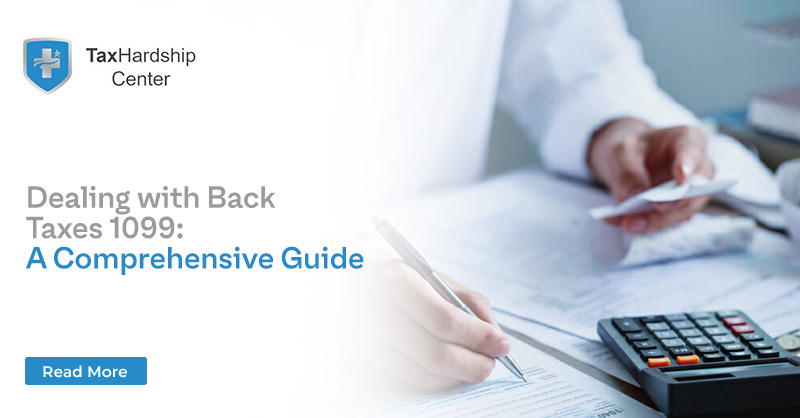Introduction
Back taxes and 1099 forms can be complex topics that often need clarification from taxpayers. Understanding these concepts is essential for staying compliant with tax laws and avoiding penalties. This comprehensive guide will take you through the basics to the advanced details of back taxes and 1099 forms. Let’s dive in!
What are Back Taxes?
Back taxes refer to unpaid or underpaid taxes from previous years. They can occur for various reasons, such as failure to file tax returns, underreporting income, or claiming incorrect deductions. Ignoring back taxes can lead to penalties, interest charges, and even legal consequences. It’s crucial to tackle back taxes promptly to minimize the financial impact.
Common Causes of Back Taxes
- Failure to File Tax Returns: Neglecting tax returns is a common cause of back taxes. Filing your taxes on time is essential, even if you cannot pay the total amount owed.
- Underreporting Income: Underreporting your income or failing to include all sources of income in your tax return can lead to back taxes. Ensure you accurately report all earnings to avoid any future issues.
- Claiming Incorrect Deductions: Incorrectly claiming deductions you are not eligible for can result in underpaid taxes and potential back taxes. Seek professional advice to ensure you claim legitimate deductions.
Understanding 1099 Forms
A 1099 form is an IRS tax form used to report various types of income other than salaries, wages, and tips. It is typically issued to independent contractors, freelancers, and individuals who earn income from investments or other sources. Understanding different types of 1099 forms is crucial for accurately reporting your income.
Different Types of 1099 Forms
- 1099-MISC: This form reports income from independent contractors, freelancers, and self-employed individuals. It captures payments made for services or work performed. It’s important to note the threshold for issuing a 1099-MISC is $600 or more in a calendar year.
- 1099-INT: This form reports interest income earned from bank accounts, savings accounts, or other interest-bearing investment accounts.
- 1099-DIV: This form reports dividends and distributions from investments, such as stocks, mutual funds, or real estate investment trusts (REITs).
Resolving Back Taxes and Dealing with 1099 Forms
Resolving back taxes and understanding how to handle 1099 forms are crucial steps in maintaining tax compliance. Here’s what you need to know:
Assess Your Tax Situation
Start by assessing your tax situation. Gather all relevant documents, including past tax returns, W-2s, 1099 forms, and any notices from the IRS. Determine the total amount owed, including any penalties and interest.
Contact the IRS
Contact the IRS to discuss your back taxes and possible resolution options. Depending on your situation, you may be eligible for an installment agreement, an offer in compromise, or other payment plans. The IRS can guide the best course of action.
Set Up an Installment Agreement
An installment agreement allows you to pay your back taxes over time in manageable monthly installments. This option provides flexibility and prevents further penalties. Ensure you make timely payments to stay in good standing.
Understand Offer in Compromise
An offer in compromise is a settlement option that allows you to pay less than the total amount owed. It is available for those who can demonstrate financial hardship or doubt their ability to pay the total amount. Consult with a tax professional to determine if you qualify for this option.
Avoiding Future Back Taxes and Managing 1099 Forms
Preventing back taxes and effectively managing 1099 forms are essential for ongoing tax compliance. Here are some crucial steps to consider:
Stay Organized
Maintain proper records of all income, expenses, and tax documents throughout the year. This organization will help you accurately report your income and claim deductions, reducing the chances of errors and potential audits.
Pay Estimated Taxes
Make quarterly estimated tax payments if you are self-employed or receive income not subject to withholding taxes. This ensures you meet your tax obligations throughout the year and avoids a substantial tax bill at year-end.
Seek Professional Assistance
Consult a tax professional or CPA who can provide expert tax planning and preparation guidance. They can help you identify potential deductions, ensure accurate reporting, and ensure compliance with tax laws.
Conclusion
Back taxes and 1099 forms can be complex topics, but understanding the basics and taking appropriate actions is essential for tax compliance. By familiarizing yourself with the causes of back taxes, understanding various types of 1099 forms, and knowing how to resolve back tax issues, you can navigate these matters successfully. Remember to stay organized, seek professional advice when needed, and tackle any tax concerns promptly to avoid penalties and maintain peace of mind.








